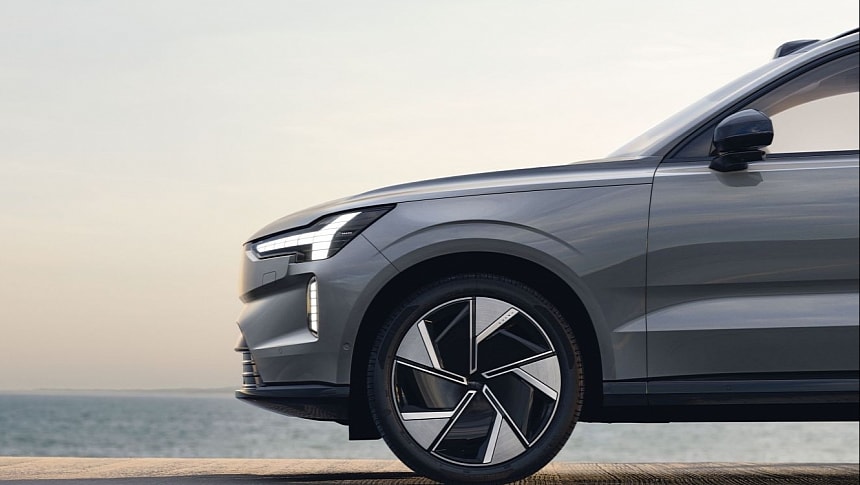Your Volvo will be able to do what your navigation apps, such as Waze and Google Maps, have been doing for ages. Your car will alert you of accidents ahead. The alert will enable you to reduce speed, be extra careful, or choose another route if traffic is building up ahead.
Volvo claims that it is rolling out the feature for situations in which a crash happens right after the corner, where visibility ahead is reduced and does not leave you much time to react proactively.
Using real-time data from a traffic management center, the connected safety feature in the Volvo cars shows up for the first time in a car. The feature will be available in compatible Volvo models all across Europe, with Denmark being the first to receive it. In Denmark, the Northern European carmaker has partnered up with the Danish Road Directorate to be able to roll out the function.
The target is to help drivers avoid collisions and traffic jams that a potential accident ahead may cause. The new Accident Ahead Alert can announce drivers in relation to a traffic accident up to a few hundred meters ahead. National road authorities and compatible cars will provide the location data.
Volvo has started on a mission to reduce the number of fatalities on board the carmaker's cars down to zero. To accomplish this mission, it introduced a self-imposed electronically limited top speed of 112 mph (180 kph) to all its new cars starting in 2020. Meanwhile, Volvo's rivals in the premium segment, such as BMW and Mercedes-Benz, stick to the 155 mph (250 kph) speed limit.
The speed limitation means that no new Volvo can drive at a speed higher than that, regardless of the powertrain that it rolls off the production line with, be it an ICE or electric motors. The move is all part of the company's Vision 2020 safety plan, which started with reducing the number of occupants killed or seriously injured in a Volvo.
Volvo informs customers that more traffic data shared by other partners in the European Data for Road Safety ecosystem will soon be available on board its cars. The carmaker will team up with national management centers in other countries but also with other car brands. Volvo is calling on other carmakers to join them in offering similar technologies to make roads safer for all, no matter the logo their cars bear.
The Accident Ahead Alert will be available on all 40, 60, and 90 series Volvo car models from model year 2016 and onwards. To make their cars share anonymous information while keeping the privacy of the owner, but also get information from other cars, drivers have to activate the option using the “Connected Safety” feature from their center display.
Their car will use the hazard lights alert on the dashboard to announce the driver of the accident ahead. If the vehicle is equipped with a head-up display, it will also show the alert.
Using real-time data from a traffic management center, the connected safety feature in the Volvo cars shows up for the first time in a car. The feature will be available in compatible Volvo models all across Europe, with Denmark being the first to receive it. In Denmark, the Northern European carmaker has partnered up with the Danish Road Directorate to be able to roll out the function.
The target is to help drivers avoid collisions and traffic jams that a potential accident ahead may cause. The new Accident Ahead Alert can announce drivers in relation to a traffic accident up to a few hundred meters ahead. National road authorities and compatible cars will provide the location data.
Volvo has started on a mission to reduce the number of fatalities on board the carmaker's cars down to zero. To accomplish this mission, it introduced a self-imposed electronically limited top speed of 112 mph (180 kph) to all its new cars starting in 2020. Meanwhile, Volvo's rivals in the premium segment, such as BMW and Mercedes-Benz, stick to the 155 mph (250 kph) speed limit.
The speed limitation means that no new Volvo can drive at a speed higher than that, regardless of the powertrain that it rolls off the production line with, be it an ICE or electric motors. The move is all part of the company's Vision 2020 safety plan, which started with reducing the number of occupants killed or seriously injured in a Volvo.
How does Accident Ahead Alert work?
The automaker’s industry connected safety technology, which was introduced in 2016, uses Volvo Car’s cloud, based on real-time data. The technology enables the Volvo cars to stay connected and communicate with each other, alerting drivers of the slippery road conditions and other traffic-related hazards. Right now, the Accident Ahead Alert is one more step to helping drivers be preventive.Volvo informs customers that more traffic data shared by other partners in the European Data for Road Safety ecosystem will soon be available on board its cars. The carmaker will team up with national management centers in other countries but also with other car brands. Volvo is calling on other carmakers to join them in offering similar technologies to make roads safer for all, no matter the logo their cars bear.
The Accident Ahead Alert will be available on all 40, 60, and 90 series Volvo car models from model year 2016 and onwards. To make their cars share anonymous information while keeping the privacy of the owner, but also get information from other cars, drivers have to activate the option using the “Connected Safety” feature from their center display.
Their car will use the hazard lights alert on the dashboard to announce the driver of the accident ahead. If the vehicle is equipped with a head-up display, it will also show the alert.









